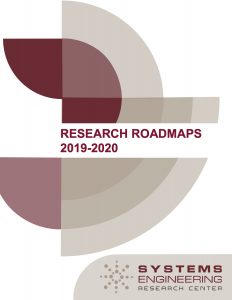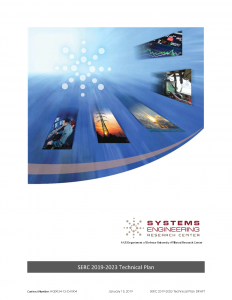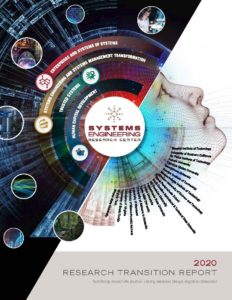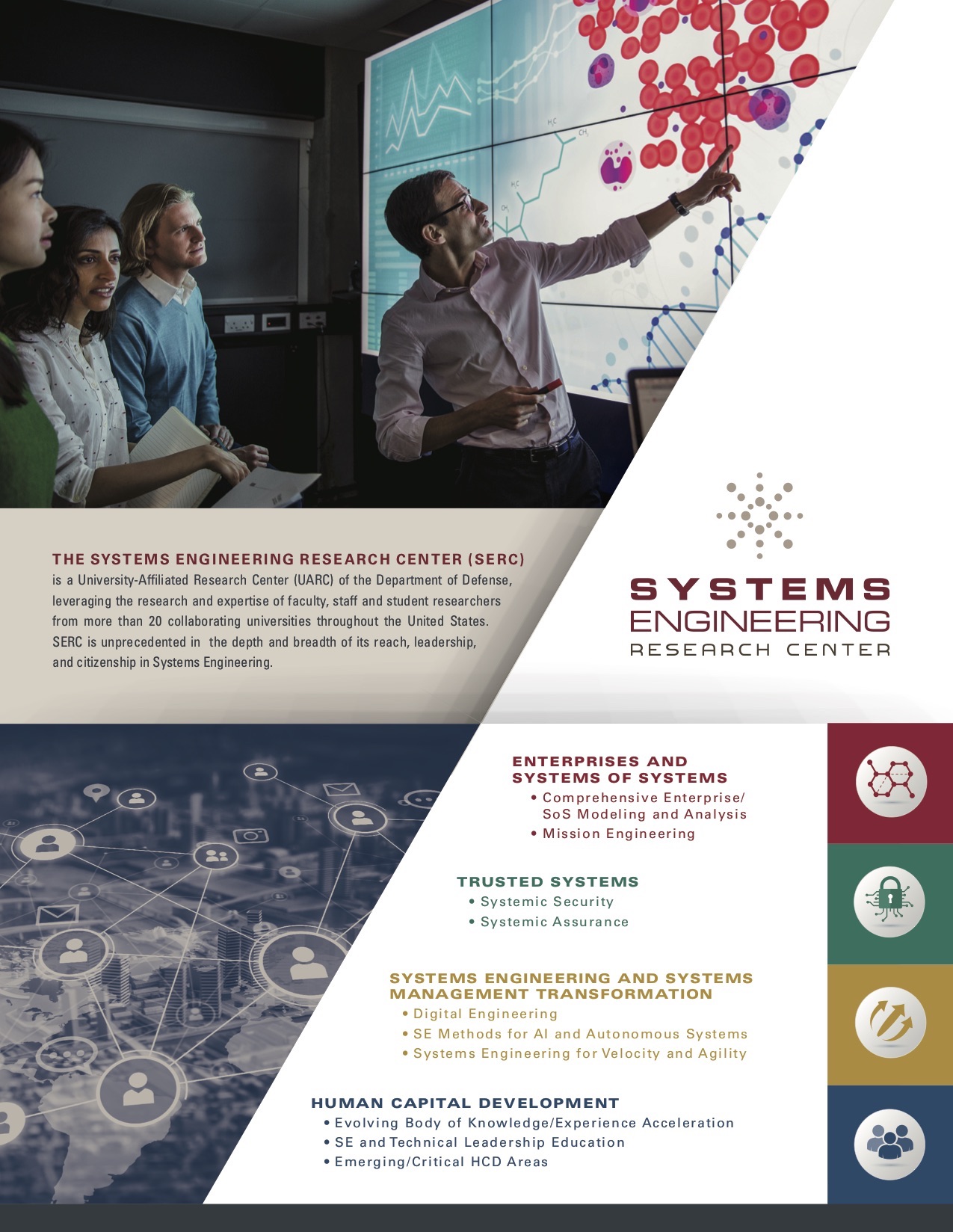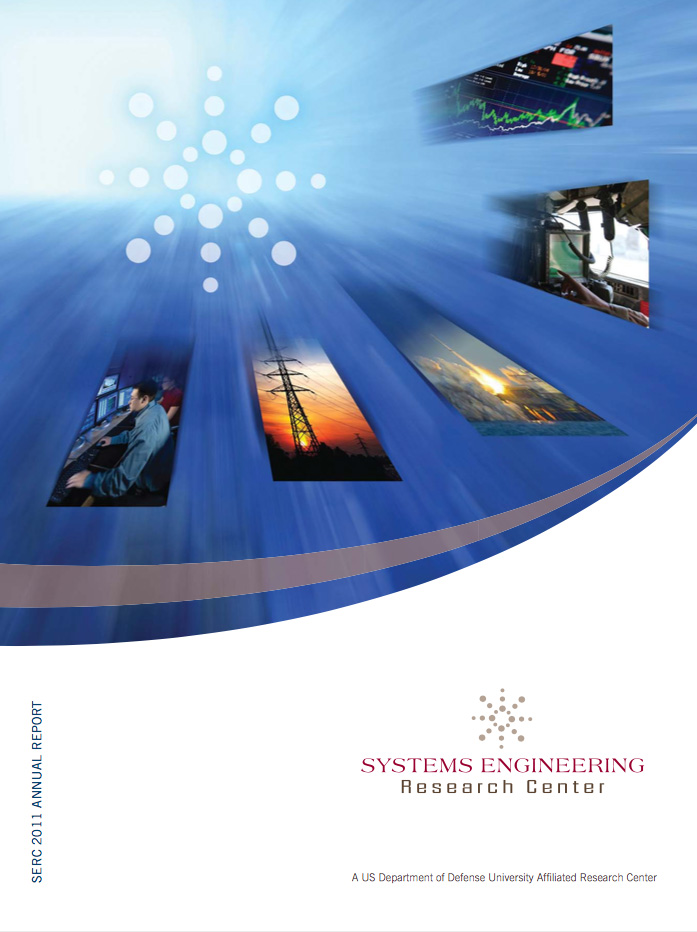RESEARCH ROADMAPS
Title: SERC Research Roadmaps
Published: November 18, 2019
The SERC research strategy aligns three mission areas which are supported by four Research Areas: Enterprises and Systems of Systems (ESOS), Trusted Systems (TS), Systems Engineering and Systems Management Transformation (SEMT) and Human Capital Development (HCD).
The mission areas that the SERC is addressing are:
- VELOCITY
- SECURITY
- ARTIFICIAL INTELLIGENCE
- DIGITAL ENGINEERING
TECHNICAL PLAN
The Systems Engineering Research Center (SERC) 2019-2023 Technical Plan aligns the SERC Vision and Research Strategy with the Sponsor’s Core funding priorities. It describes the SERC Vision, the Sponsor’s needs, and the SERC’s response to these needs. This is reflected by three mission areas which are supported by four Research Areas: Enterprises and Systems of Systems (ESOS), Trusted Systems (TS), Systems Engineering and Systems Management Transformation (SEMT) and Human Capital Development (HCD). A Vision statement is presented for each of these four Research Areas, along with a strategy to address it. Eleven research programs have been identified to support this strategy. Research projects are then presented which support each of these programs, consisting of existing and anticipated future projects.
RESEARCH TRANSITION REPORT 2020
Title: SERC Research Transition Report 2020
Published: November 20, 2020
All research within the SERC is conducted with an objective of transitioning that research into practice, as appropriate. This aspect of the SERC continues to grow in impact through our collaboration with a number of FFRDCs, National Laboratories, and DoD Industry. To support the SERC transition goals, this report highlights research tasks in the government fiscal year 2020 (GFY2020), from 1 October 2019 – 30 September 2020. SERC researchers have published more than 500 technical papers and reports over the past eleven years. Research findings have transitioned into numerous courses across the SERC universities and beyond. We encourage organizations to review the research tasks highlighted in this report, and to contact us if we can assist in the necessary discussion and engagement to support the transition of relevant research into practice.
ANNUAL REPORTS
NOTE: After 2018, publication of this report has now transitioned to an internal reporting system.

